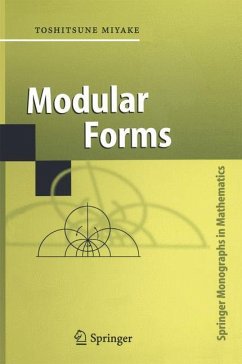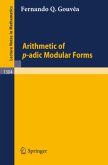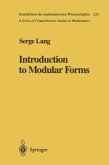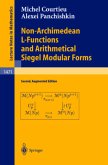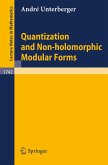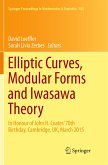For the most part, this book is the translation from Japanese of the earlier book written jointly by Koji Doi and the author who revised it substantially for the English edition. It sets out to provide the reader with the basic knowledge of elliptic modular forms necessary to understand the recent developments in number theory. The first part gives the general theory of modular groups, modular forms and Hecke operators, with emphasis on the Hecke-Weil theory of the relation between modular forms and Dirichlet series. The second part is on the unit groups of quaternion algebras, which are seldom dealt with in books. The so-called Eichler-Selberg trace formula of Hecke operators follows next and the explicit computable formula is given. In the last chapter, written for the English edition, Eisenstein series with parameter are discussed following the recent work of Shimura: Eisenstein series are likely to play a very important role in the future progress of number theory, and thischapter provides a good introduction to the topic.
From the reviews of the first edition:
"Toshitune Miyake's book is a useful introductory book on the subject of modular forms. ... Some key features of Miyake's book are that it is accessible, well written, and well organized. ... As a result, Miyake's book is both an excellent first text from which to learn the subject and a very good reference. I have found myself returning to the book repeatedly for tidbits that are hard to find in the literature. ... Miyake's book is an excellent introduction to ... modular forms." (Eknath Ghate, SIAM Review, Vol. 48 (3), 2006)
"Toshitune Miyake's book is a useful introductory book on the subject of modular forms. ... Some key features of Miyake's book are that it is accessible, well written, and well organized. ... As a result, Miyake's book is both an excellent first text from which to learn the subject and a very good reference. I have found myself returning to the book repeatedly for tidbits that are hard to find in the literature. ... Miyake's book is an excellent introduction to ... modular forms." (Eknath Ghate, SIAM Review, Vol. 48 (3), 2006)

